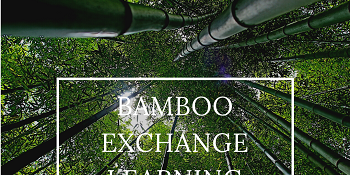THEME: “Sustainability and Versatility of Bamboo”
Ethnicity, culture, and tradition can help us find and connect with our roots. Understanding our ancestors and their practices during the ancient days can help us connect with them emotionally and spiritually. Understanding nature and the connection we have with our mother earth will surprise you in fact enduring.
A two-day exchange learning workshop on Bamboo was organised at North East Network Resource Centre, Chizami on 18th and 19th November 2020. Youth Collectives from Chizami, Zhavame, Thurutsuswu, Phughi, Zelome, and Enhulumi participated in the programme.
The programme was organized to facilitate exchange learning on bamboo between members of distinct communities and to provide training on documenting indigenous natural resources found within one’s community.
During the 2 day programme, the following activities were carried out
- Training on Basic of Photography
- Training on documentation – building database
- Bio-mapping/resource mapping
- Bamboo Exhibition
- Storytelling
On day 2, 19th November 2020, Keynote speaker, Ms. Seno Tsuhah highlighted the theme of the programme “Sustainability and Versatility of Bamboo”. In her address, Ms. Seno stressed on the significance of bamboo with Naga Culture and the importance of conserving bamboo plantation in combating climate change, encouraging the participants to work with bamboo and recognise its value. The significance of bamboo as stated by Seno highlighted the relationship between the Naga people and bamboo, wherein the olden days, during the birth of a child the umbilical cord is cut out with a Bamboo. In addition, the Naga community have a long history of working with bamboo, the art of utilizing bamboo is found in every household within the naga community. In the Naga community, bamboo is used for constructing houses, for making baskets and utensils for household uses, and for making tools for farming and hunting. Thus having a significant relationship with an individual life from birth to death
Guest Speaker, Shri Angam Longho, BDO, Chizami in his speech acknowledged the youth collectives in taking an interest to learn and work with their own community resources. Speaking on bamboo, Shri Angam stated that bamboo can provide an alternative form of livelihood. Encouraging the participants to cultivate bamboo on a small scale in their garden as the lifeline of Naga people revolves around bamboos. Further, highlighting the potential of promoting bamboo, he talked about the possibility of supporting the youth collectives by the Rural Development Department.
Acknowledging the diligent works of the youth collectives in working with bamboo, North East Network presented the following youth collective from Phugi, Phek, and Thurutsuswu with assorted tools and equipment which can be used in their bamboo works.
For the training on basic photography, the training was facilitated by resource person Kewekhrozo Thopi – the content of the training follows understanding the basics of photography: Rule of Thirds, Lighting, Composition, Angles, and Types of lenses.
As for the documentation on resource mapping and bio mapping, the training was facilitated by Vilazonuo where the participants went for field visits around Chizami Village to identify the different species of bamboo found in the village and also to identify the different usages of bamboo in Chizami by visiting households. This training facilitated them to identify the natural resources in the community and to create a database of the documented species.












